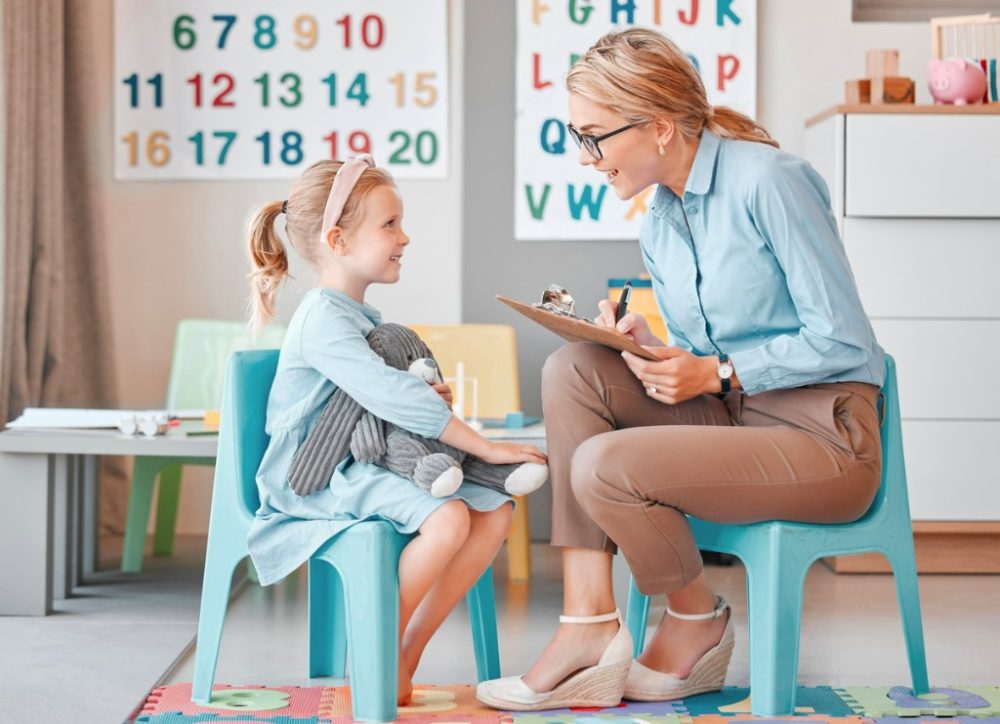Dubai School Admission Early Years Assessments: What to expect and how you can prepare your child
No matter how much educators might try to reassure families about early years school entrance assessments, the myths and legends still abound.
I heard them all as a first-time mum myself, swapped in hushed tones amongst anxious parents in the playground:
“So-and-so elite school rejected my friend’s two—year-old for describing the image on a flashcard as a fish rather than a whale”;
“My neighbour’s son didn’t get into the community school because he was too shy to talk in the assessment”;
“Our friend’s little girl was rejected because she cried when she had to leave her mum and dad …”
The fact that I was about to subject my lisping, wispy-haired two-year-old to a situation in which he would be analysed and potentially deemed unsuitable felt heart-breaking, and I was more nervous before his ‘stay-and-play date’ than I had been for any university exam or job interview I’d had in my life.
But while the rumours might make school entry assessments seem like ruthless ordeals that no child should ever have to go through, the truth is – or at least it should be – far gentler and more prosaic, say teachers.
If your child is still wearing nappies, drinking from a bottle, or wants mummy or daddy to be in the classroom with them at their Early Years assessment, that’s probably fine, says Joanne Jewell, a parenting educator who worked as a school counsellor for 15 years:
“It’s sad that parents feel so much pressure for their child to be ready to be so independent at often a very young age. We can give them opportunities to learn and teach them these skills but all children learn at a different age and in different ways so please don’t be worried if your child is at a different stage to others. Teachers and Assistants are well aware that children are all different and additional pressure placed on a child can make the situation more difficult and cause unnecessary anxiety in them.”
“In these situations it’s often the parents who are anxious and the children will take their lead from mum and dad. Remember: it’s perfectly normal to have a huge mixture of emotions about your child starting school – especially if he/she is your eldest and this is your first experience.”
Now that Covid restrictions have dropped and children are once more going into schools for their entry assessments, we spoke to Hannah Hepworth-Smith, EYFS Coordinator at Victory Heights Primary School, Hannah Howard, Head of Early Years at Horizon English School Dubai and David Wilcock, Head of Primary at The English College to find out what schools are looking for in school entry assessments, what to expect, and how best to prepare your child.
You may also like: ‘Is 3 years old too little to start “big school” Why UAE expats send their children to school so young’.
What happens in school entry assessments?
Although some schools will accept video assessments, or even Nursery reports if they exist, many establishments like to invite a child into the building for a physical entry assessment in person. These tend to involve games, singing and informal interaction; they are not designed to test children’s knowledge or trip them up in any way. They can also be a good opportunity for you as a parent to gauge the way a school runs, and for the child to become familiar with the Early Years surroundings, if he or she does end up enrolling as a student. Hannah Howard, Head of Early Years at Horizon English School says:
“We have informal school entry ‘assessments’, which we refer to as ‘stay and play’ sessions, where the children enter an enhanced Early Years environment and can play and interact with adults and other children.”
David Wilcock, Head of Primary at The English College adds:
“Assessments are done as informal interactions between the teacher and the child through play-based activities and conversations that gauge the child’s language, communication and comprehension skills.”
Why do you need to assess my three or four year old?
While older children are likely to have an established legacy of school reports or are able to take part in an interview or written test in the case of selective schools, the situation is different for children in the younger years. Hannah Howard of Horizon English School says:
“We use this as an opportunity for the children to demonstrate their current early development in an informal environment, through a play-based approach, mirroring the Early Years Curriculum. This is a chance for our Early Years team to get to know each child, observe their school readiness and ensure we can provide the appropriate support for every child.”
Head of Primary at The English College, David Wilcox, expands:
“These assessments throw light on children’s physical, emotional and social development along with their reading, writing and maths skills. This helps us in deciding on the kind of resources & support that we need to offer to meet the child’s needs, including any special needs provision.”
Hannah Hepworth-Smith, EYFS Coordinator at Victory Heights Primary School, sums it up:
“Essentially we want to identify if a child needs support when they come to the school.”
What sorts of attributes or behaviours are the assessments looking for?
During the assessment schools are looking for a series of behaviours and skills, says The English College’s David Wilcox:
“For example, can they separate from their parents? How does the child engage with the resources in the classroom? Are they curious, can they self-regulate?
Can they comprehend and follow instructions, their organisation and fine and gross motor skills and how much can they express their thoughts and ideas?”
Horizon English School’s Hannah Howard adds:
“We observe the children through play and interact with the children, observing their fundamental skills using the prime areas within the EYFS Curriculum; communication and language, physical development, gross and fine motor skills and their personal, social and emotional development. Are they able to independently demonstrate their wants, needs, likes and dislikes appropriately within an environment.?”
“For children venturing into Year 1 we also observe the prime areas and also further skills such as; early writing, reading and mathematical skills, through play-based activities.”
When do school entry assessments happen?
School entry assessments for high-demand education providers that have an academic year starting in September will often invite batches of children to apply and be assessed in the November of the year before or the January of the same year the child would start school – but many have rolling group or one-to-one assessments throughout the year and into the Spring and Summer terms.
This means that a child who will be three years old to start FS1 or Pre-KG in September could easily be having an assessment at the age of two years, a full 10 months or more before they would actually be starting school.
A lot of physical, emotional and social development can happen in that timeframe, so schools are aware that the stage your child is at for the assessment could be very different from the stage they are likely to be at when they start school.
Some schools may be open to the possibility of holding assessments at later dates if your child is young for the year. Just be sure to check with the policy of the schools you are interested in and communicate with them about it; oversubscribed schools will have stricter policies and may fill up earlier in the year.
Are young children always assessed alone?
This depends on the individual school, but for many the goal is an independent assessment. Hannah Howard says:
“We encourage all parents to remain in the reception area and allow their children to demonstrate their independence, as we feel this allows them to give us a true reflection of those prime areas of development, such as, their emotional development. However, we understand all children are different and may react differently in these, new social situations and we do not want to distress the children.”
The English College’s David Wilcox says:
“If the child is confident, we do the assessment without parental presence.”
Victory Heights Primary School’s Hannah Hepworth-Smith says:
“Mums and dads are present and are there if their child needs them.”
What happens if a child cries or does not want to co-operate in the assessment?
Hannah Howard, head of Early Years at Horizon English School says:
“We may ask for children to return for further ‘stay and play’ sessions, allowing them to get used to this new environment or attend the children’s nursery, observing them in an environment that they may feel more comfortable in. This allows us to prepare for where the children are currently in terms of their school readiness, confidence and social development.”
What sort of incident at the assessment might mean that a child applying for a school space would not be accepted?
Hannah Hepworth-Smith of Victory Heights Primary School says:
“There is no such thing as an assessment that wouldn’t be acceptable unless the age of the child is incorrect or the relationship with parents and the advice from the school is not accepted by the parent. It’s about building a relationship of trust with the family and understanding the child’s needs and how to best support them when coming into the school environment.”
Hannah Howard at Horizon English says:
“The school is committed to provided education for all. As a fully inclusive school we are able to offer a diverse programme that meets the needs of all. Should a child have any complex need that the school is not able to support then our next steps would be to support the families in finding the most suitable setting for the needs of the child.”
David Wilcox at The English College says:
“We are an inclusive school and strive for a good balance of student needs in a class. Our SEN department takes into consideration, the extend of special needs that can be catered by the school.”
Some parents might be worried that their child is being assessed at such a young age. What is your advice?
David Wilcox of The English College says:
“The sessions are informal and play based so as not to put the child under any pressure. If required, parents can also be present during the assessment.”
Hannah Howard of Horizon English School says:
“As a school we reassure all prospective parents that this is not a ‘formalised’ assessment where children are expected to undertake a series of formal ‘tasks’. This process is an informal stay and play sessions, allowing us to meet their children, explore our engaging learning environments, communicate and socialise with others through a child led, play based environment.”
“Parents may feel nervous, however, as a school we communicate with the parents throughout the process, which allows the parents to ask any questions. We keep them informed at all times, making it an enjoyable, seamless process.”
Hepworth-Smith of Victory Heights adds:
“With all parents we reassure them that we are working with them and their child to build an understanding of how to support them when moving to a school setting.”
“We also have an outstanding inclusion department which helps support parents with children with particular needs.”
What happens if a child isn’t fully toilet trained by the time school starts?
One of the biggest anxieties for parents of children going into the Early Years is toilet training – especially since the assessments can be so many months in advance of the child’s first day of school that many children are still very much in nappies.
Hannah Howard says:
“In order to begin FS1 all children must be fully toilet trained and demonstrate ‘school readiness’. If children are not fully toilet trained, we can direct and support families in order to achieve this. We then encourage the children to join later in the year once they are fully toilet trained.”
Hepworth-Smith says:
“We strongly encourage all children to be toilet trained before starting school unless there is medical reason. However, we would always work with the child and parents to support each individual case to ensure the best for the child.”
Top 10 Tips to Prepare your child for Early Years School Entry Assessments in the UAE – and what comes afterwards
1. Talk about it (positively)
Do not keep quiet about the assessment day, only to spring it on them at the last minute. “We advise the parents to let the child know about the assessment, where it would be and what they might do there; just to prepare the child on what to expect,” says David Wilcox, Head of Primary at The English College. Brief your child about the school and the process they are about to go through. Be sure to keep it light and cheerful, and emphasise the fun and exciting aspect of the opportunity to meet new friends and see a fun new environment.
2. Don’t coach your child
Children needn’t be coached specifically for the assessment, agree teachers – in fact it could easily backfire. Trying to cram knowledge about numbers or their ABCs is possibly going to put pressure or stress on a child, and this sort of knowledge is not the sort of thing children are being assessed on anyway.
“Parents always seem to worry about their child ‘writing their name’ or ‘knowing their numbers’,” says Hepworth-Smith of Victory Heights. This is something we discuss regularly and reassure them that it is absolutely fine if they cannot, and this is why we are here!”
“We are aware that every child is different and it’s about how we as a school can ensure the child can make progress in all areas of learning.”
3. Validate their feelings
While it’s important to be upbeat about the process, it’s OK to empathise and acknowledge that your child might miss you if they need to be alone during their assessment; just like you, they will also be having mixed feelings and will rely on you to help them manage them. When they talk about their emotions, even if they are negative ones, it’s an opportunity for you to recognise them and try to help; it doesn’t mean they won’t be perfectly fine on the day.
4. Get familiar
If you can, familiarise your child with the school surroundings. Taking your child to the school before the assessment, showing them the campus, and allowing them to interact with people in school will them get comfortable and feel like they are in a known setting
5. Plan for success
As with anything with small children, nothing goes well if it’s done in a rush. Make sure to leave plenty of time to leave for the assessment so that you are not stressed about timings, and ensure your little one has a healthy meal or snack shortly before so they are not hungry.
6. Assert yourself
You are you child’s guide, advocate and role model. If you have questions, don’t be afraid to ask them. And if you know that your child will fare better in different circumstances (if you are present, for example) then don’t be afraid to speak up.
7. Don’t stress!
The most important point of all is to try and manage your own feelings – children pick up on adults’ emotions, so keep things in perspective, and try to relax. It’s normal to be nervous, but these are not formal tests – they are just a way of assessing children’s needs. You got this!
8. Remember you will live another day
If your child does not secure a place, hold onto the fact that it was not meant to be. For every outstanding school in the UAE there are two or more waiting for you and your child with open arms. Schools do make mistakes. They may also take a view that the fit is not perfect. Ultimately it does not matter which it is. Another school will be waiting to scoop up your little one and be delighted to have them. Your child will recognise that delight – and you will know you have found the right school.
9. Be strong
You absolutely want to find a school that truly wants your child and you as parents too – and demonstrates that. They should be showing empathy. kindness and inspiring you and your child. The pressure is also on them – they are on trial as much as your child. Ultimately, this day is as much about you and your child deciding whether this is the right school for you- the power is absolutely not one-sided.
10. Listen to your child
When they leave, particularly if you have not been present during the assessment, spend time afterwards listening to how they feel about the school. How they feel about the school may well give you the answers to the questions you are asking as you weigh up your decision.
© SchoolsCompared.com. 2022. All rights reserved.

































































Leave a Response